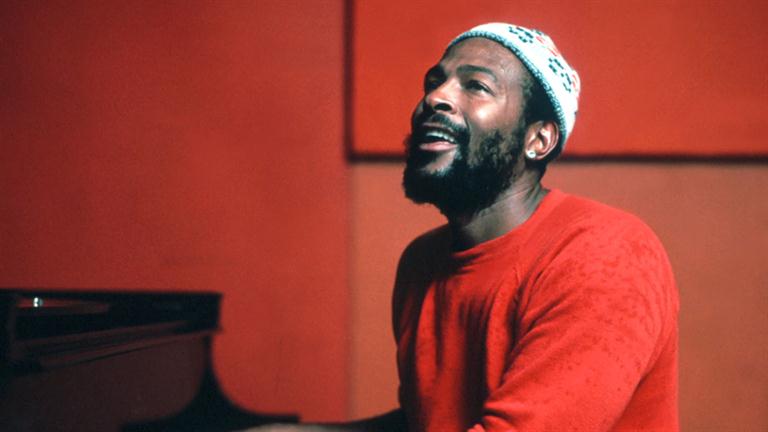You might have heard about this yesterday. The writers of last year’s hit Blurred Lines were sued by the family of the late Marvin Gaye (pictured above) because they claimed that the song as it was produced was too similar to Mr. Gaye’s hit Got to Give It Up. If you haven’t heard the two songs mixed together, here’s a quick comparison video found on YouTube… lacking the “visual content” of the Blurred Lines video, sorry horndogs)
First of all let’s talk about the elephant in the room: The bass lines of the two songs are remarkably similar and I personally think anyone with common sense would agree that the productions are similar enough that the Gaye family had a case. A jury agreed too, to the tune of over $7 million. Pharrell Williams, co-writer of the song, has that kind money lying around and this verdict won’t hurt him other than perhaps causing him to cut down on outrageous hats. Take the bass lines out and they’re clearly different songs, but the bass lines are pretty integral to both songs. The jury wasn’t wrong.
It does bring up the question of how similar is too similar, though, and even more so the question of how long an artist can reasonably expect some level of copyright protection. For copyrightable works (including books, recordings, software, movies, whatever, copyright is either applicable for 70 years after the death of the author or up to 120 years after the original publication if the author is a corporation.
Yeah really. Love it or hate it, the children of the people who wrote The Macarena could still claim royalties on it until at least the year 2114, depending on how it was copyrighted. Does that seem reasonable to you? This seems like a ridiculously long period of time.
Think about it for a second, there aren’t really that many deeply original books, songs, or movies. Given the sheer amount of content out there, chances are excellent that the same phrase was turned before, the same chord was played before, the same shot was used before. This is especially true in music, because there just aren’t that many chords that sound good to us. Songs inevitably sound the same because they’re tailored to the same tastes. A few years ago thee was a mix of six country songs released in the same year and you’d swear it was all one song. It was on YouTube but got taken down.
As far as I know none of these songwriters sued each other because they’re all in on the gag. They know that there’s a sound people want and none of them claim exclusive rights to it. Of course, Mr. Gaye’s song predated Mr. Williams’ by about forty years, so it’s a slightly different story. I’m not claiming that the later song is different from the earlier one, I’m just claiming that the law that allows the earlier author to profit is wrong.
From my own point of view, I think copyright should last 30 years or 20 years after the death of the author, unless there is a specific reason for it to last longer. If the work has such cultural relevance that taking it out of copyright would really deprive an author of relevance even decades later, maybe there’s a case. But realistically there’s a lot of music out there that should go to the public domain precisely because it is culturally relevant. I’d argue that the entirety of the Beatles’ catalog should belong to the world, and so should that of The Rolling Stones, The Byrds, Sam Cooke, and many other artists of the 1960s. These songs shaped the world and became part of our culture. They should not be copyrighted fifty years after the world heard them.
The same is true of software. Many companies spend more money defending against copyright lawsuits than they do innovating, and often times copyrights are bought for pennies when the original authors’ companies dissolve. I can think of no logical reason that any piece of software published before 1995 deserves copyright protection. If it’s relevant (like, say, WordPerfect) then it should belong to everyone, and if it’s irrelevant like 99% of software from then, why should anyone profit from it?
More than ever, our culture is not our own. One company — Disney — owns so much of our childhoods that they can literally set their own price just for us to walk near life-sized representations of the icons of our past. I’m not blaming them, the law lets them do it. There just has to come a point where we say that the past is the past and the only way the future can be the future is if there is reasonable copyright law here in the present. Otherwise, I guarantee someone will sue this blog because they previously editorialized about copyright laws. That would just be ridiculous.

